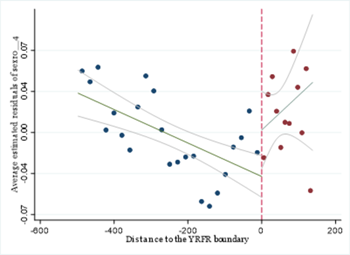Study finds that natural disasters can increase discrimination, including towards women
Published 08 April, 2022
China’s Yellow River has a long and tumultuous history of flooding, and has been the cause of the some of the deadliest natural disasters ever recorded. Before the introduction of dams and other modern disaster management methods, floods would not only lead to multiple drownings, but spark long-term famines and the emergence of infectious diseases.
In a study published in the KeAi journal China Economic Quarterly International, Ruibing Liang, a professor at the School of Economics, Xiamen University, China, set out to discover how events in the Yellow River flooding Region (YRFR) have shaped the area’s culture.
He explains: “Few studies have ever comprehensively discussed the general impact of natural calamity on three main cultural variables, namely gender norm, religious beliefs and trust. Using YRFR as a case study, I wanted to see how the frequent flooding there has influenced these variables.”
Liang drew on national population censuses and Chinese General Social Survey data for the study, and applied a regression discontinuity design.
He says: “What I found is that people in the region value sons over daughters – in fact, the number of boys per 100 girls is four more; for example, if the gender ratio of boys to girls is 1.05 (105 boys per 100 girls) outside the YRFR, then within the YRFR region, it will be 1.09 (109 boys per 100 girls). And the female employment rate in the YRFR is 21.1 percentage points lower than in other regions.
“I also found that while people living in the YRFR tend to believe in religions and participate in religious activities more frequently, they reject foreign religions such as Christianity. In addition, they are generally suspicious of others, but retain a high level of trust in institutions and organizations, such as governments and the army. These conclusions remain robust when proxy variables and substitute regression forms are used, population migration is considered, and the placebo test is performed.”
Liang adds: “This paper demonstrates that, in the long run, economic shocks have the ability to not only change people's behaviours, but strengthen that change and make it endure.
“I believe these results are of great significance for understanding the causes of cultural differences among regions from the perspective of economics. And they could help us understand some of the issues that people in YRFR are currently dealing with; for example, regional and gender discrimination.”
According to Liang, the findings may also provide insights into the potential impact of other natural calamities, such as earthquakes, droughts, famines, and even climate change.
###
Contact the author: Ruibing Liang, ruobingliang@xmu.edu.cn


